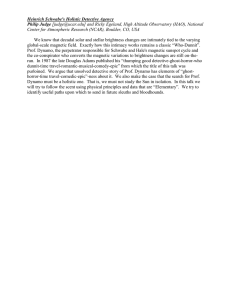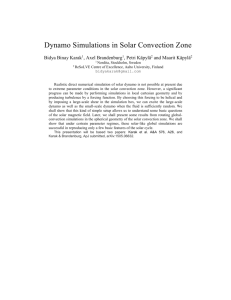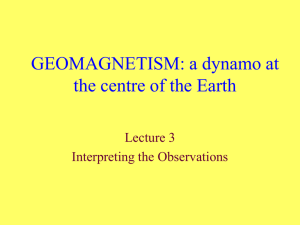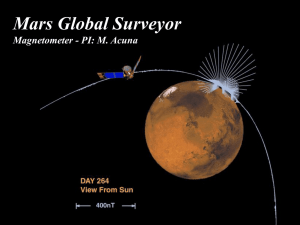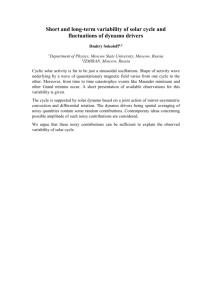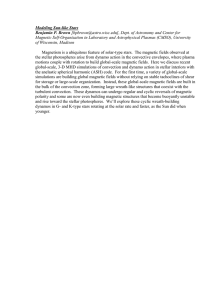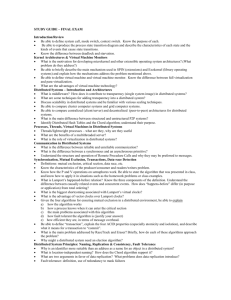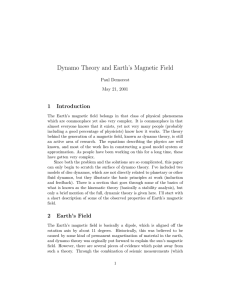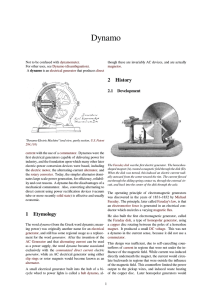Recent Progress in Understanding the Sun’s Magnetic Dynamo
advertisement
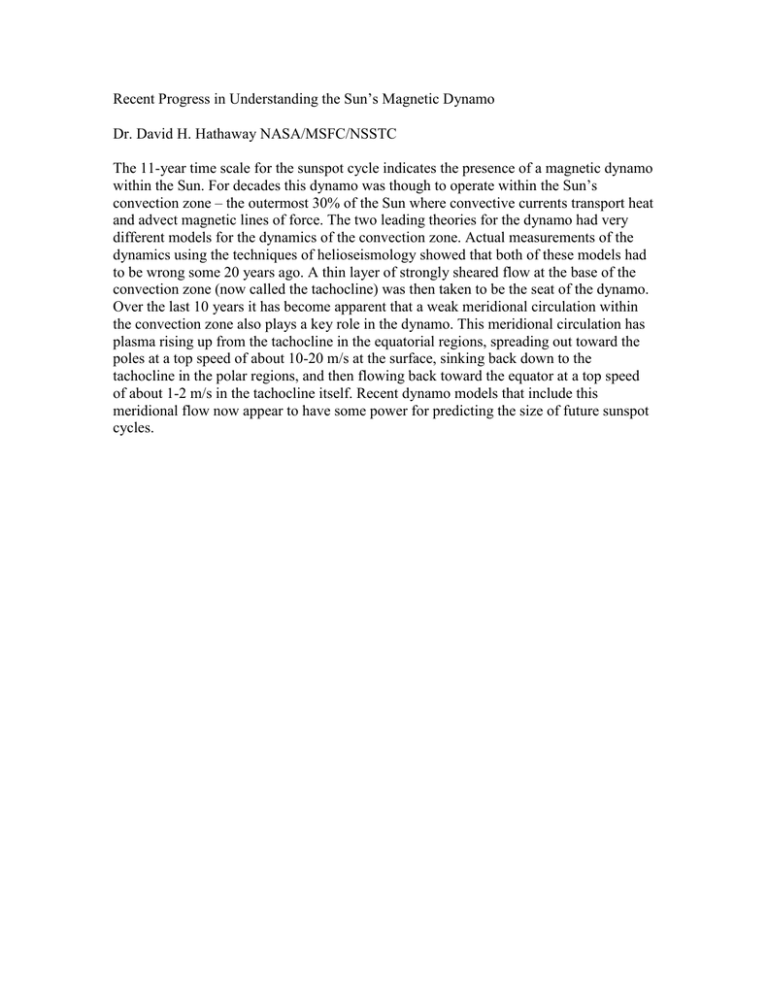
Recent Progress in Understanding the Sun’s Magnetic Dynamo Dr. David H. Hathaway NASA/MSFC/NSSTC The 11-year time scale for the sunspot cycle indicates the presence of a magnetic dynamo within the Sun. For decades this dynamo was though to operate within the Sun’s convection zone – the outermost 30% of the Sun where convective currents transport heat and advect magnetic lines of force. The two leading theories for the dynamo had very different models for the dynamics of the convection zone. Actual measurements of the dynamics using the techniques of helioseismology showed that both of these models had to be wrong some 20 years ago. A thin layer of strongly sheared flow at the base of the convection zone (now called the tachocline) was then taken to be the seat of the dynamo. Over the last 10 years it has become apparent that a weak meridional circulation within the convection zone also plays a key role in the dynamo. This meridional circulation has plasma rising up from the tachocline in the equatorial regions, spreading out toward the poles at a top speed of about 10-20 m/s at the surface, sinking back down to the tachocline in the polar regions, and then flowing back toward the equator at a top speed of about 1-2 m/s in the tachocline itself. Recent dynamo models that include this meridional flow now appear to have some power for predicting the size of future sunspot cycles.
![Paul Charbonneau [], Département de Physique, Université de Montréal, Canada](http://s2.studylib.net/store/data/013086474_1-07f8fa2ff6ef903368eff7b0f14ea38f-300x300.png)
